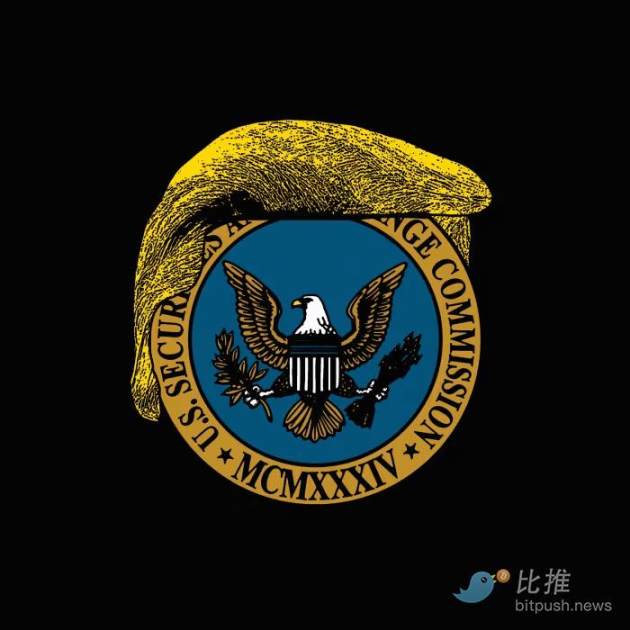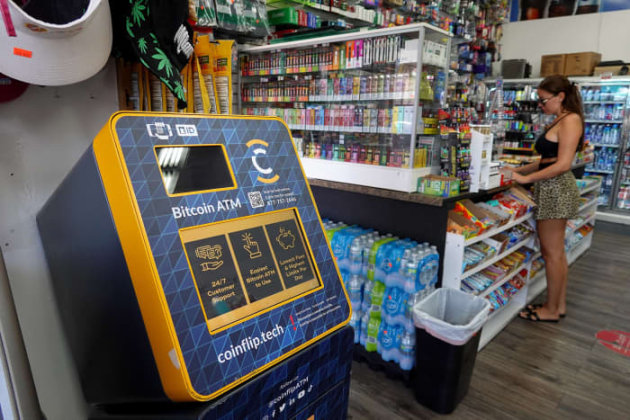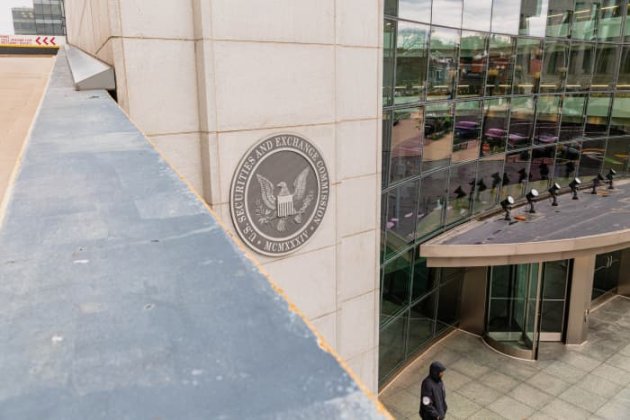Source: The Wall Street Journal
Compiled by: BitpushNews
Last year, the U.S. Securities and Exchange Commission (SEC) sued cryptocurrency exchanges Binance, Coinbase and Kraken, accusing the platforms of conducting unregistered securities sales, while crypto executives refused to comply with financial rules they believed were inappropriate for digital currencies.

On one side is the crackdown under the leadership of current chairman Gary Gensler, and on the other side is the crypto industry's call for new crypto-specific regulations and calls for a lighter regulatory approach. If the SEC wins in court, these victories will force the free market to comply with long-standing institutional rules to protect investors who buy securities. But lawsuits can take many years to resolve, and with Donald Trump's re-election, Gensler is running out of time to handle these big cases.
Trump’s return to the White House means a new era for cryptocurrencies — one with fewer government barriers.
The president-elect has shaken off his previous skepticism of cryptocurrencies and pledged support for the digital asset industry, and he also wants to impose limits on the independence of agencies such as the SEC and the Federal Reserve. Crypto industry leaders have also expressed support for his return.

The next SEC chairman may offer a favorable settlement to cryptocurrency exchanges, and a lawyer seen as a possible successor to Gensler has positioned himself as a critic of Gensler's lawsuits. Former SEC General Counsel Robert Stebbins said the agency should suspend most cryptocurrency lawsuits while clearing a path for these companies to operate without the suspense of litigation.
“As long as there are no allegations of fraud involved, my sense is that the commission will likely dismiss these cases in the future,” Stebbins said.
Other candidates on Trump's short list include former Securities and Exchange Commission Commissioner Paul Atkins and former Coinbase Chief Legal Officer Brian Brooks, who declined to comment.
Dropping the lawsuit would mean the end of an adversarial approach to the crypto industry that began in 2017, during Trump’s first term, when the market was flooded with new digital assets that were sold to the public without any restrictions. Trump was critical of cryptocurrencies early in his term, once saying their value was “without basis.”
At the end of Trump’s first term, the SEC filed a lawsuit against Ripple Labs, which sold $1.3 billion worth of the cryptocurrency XRP. The SEC lost the case last year, a major setback for the agency in litigation.
The rise of cryptocurrency exchanges in the early days of the Covid pandemic made it easier for a new wave of amateur traders to enter the market, driving digital currency prices to new highs.

Gensler shifted the SEC’s attention from the hundreds of token issuers to these exchanges and similar middlemen.
He sees it as a more effective way to deal with rampant noncompliance. Previous SEC investigations have resulted in dozens of settlements with smaller market players, but have not stopped exchanges from adding many new tokens to their platforms.
The sudden collapse of crypto exchange FTX and the closure of crypto lending institutions in 2022 seemed to confirm Gensler’s warnings about this fast-growing, unregulated market. Due to fraud and poor risk management in the industry, individual investors lost billions of dollars on their holdings.
Months after the FTX debacle, the SEC issued its most serious charges yet, accusing Coinbase, Kraken, and Binance of operating unlicensed exchanges because they failed to comply with investor protection laws when selling securities.
While some smaller companies have chosen to settle with the SEC, large exchanges do not consider this an option. For them, settling on the SEC's terms means failure. In the case of Coinbase, it will have to delist many of the digital currencies it trades and stop offering other services such as staking. Staking is a way for traders to earn extra income by holding tokens. Other SEC regulations prohibit exchanges from holding investors' assets, which has forced exchanges to split their businesses into different companies.
Cryptocurrency companies argue that investment regulations written for Wall Street don’t apply to digital tokens designed to run over peer-to-peer computer networks. Coinbase, for example, says most cryptocurrencies are akin to commodities or collectibles, comparing them to baseball cards or Beanie Babies.

Gensler is leaving next month, and some of the SEC’s legal arguments have been accepted in the preliminary stages of the lawsuit. In his latest victory, a federal judge in San Francisco rejected in its entirety one of Kraken’s arguments and accepted the SEC’s view on how to apply the legal test to determine which investments are securities.
“Courts have consistently upheld our actions to protect investors and rejected arguments that the SEC cannot enforce the law when securities are offered — regardless of the form in which the offering takes place,” Gensler said in a recent speech.
Other judges expressed reservations.
“The agency’s decision to police this multibillion-dollar industry through litigation — on a case-by-case, coin-by-coin, forum-by-forum basis — may not be an efficient approach and may lead to inconsistent results,” U.S. District Judge Amy Berman Jackson in Washington, D.C., wrote this summer when she dismissed part of the SEC’s case against Binance.
Some experts say the SEC is wasting valuable time by positioning itself as a beat cop, and should have been writing a new set of rules that would provide more direct protections for investors and consumers. “That’s not the right approach,” said Sarah Hammer, executive director of the Wharton School at the University of Pennsylvania.
Gensler said in a November speech that he was simply continuing a strategy used by former SEC Chairman Jay Clayton, who ran the SEC during Trump's first administration.
Others believe Gensler has no choice but to use enforcement to crack down on crypto companies he believes are violating securities laws. Marc Fagel, former director of the SEC’s San Francisco office, said that if he chooses to offer new industry regulations, companies will likely challenge them and both sides will end up in court.
“Any rule that’s not 100% accepted by the crypto industry is going to be drowned in litigation,” Fagel said.














